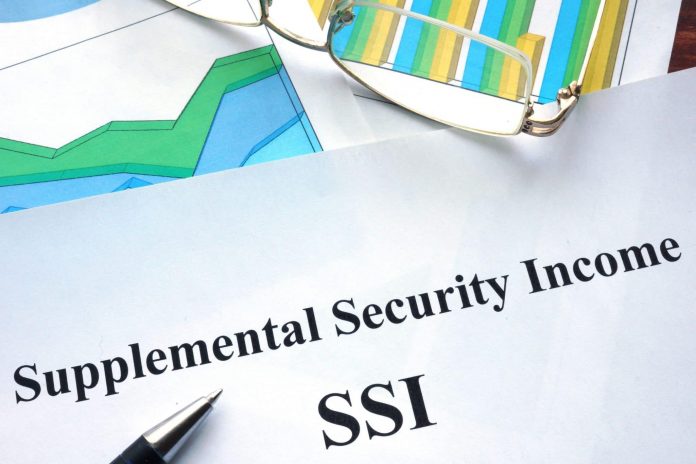We’re all working towards making ends meet and hopefully saving something on the side. Many of us work day in and day out trying to develop our careers towards better-paying jobs. Some of us might’ve made the right decisions toward improving our finances. Those who did probably aim to buy something big or even retire early. But, most of us are trying to stay financially afloat. Unfortunately, some of us have it a bit tougher. For example, the elderly (65 and above) not only struggle to perform jobs that require stamina and strength but also struggle to find jobs that pay decent salaries. Some struggle with physical ailments. These ailments can sometimes put an end to someone’s career.
So, what are those people supposed to do? Just roll over and give up. Obviously, there’s got to be a solution. And, thankfully, there is. The government works constantly on assisting Americans who need the assistance. The federal government created plenty of assistance programs to help those who struggle to make ends meet due to no fault of their own. In this situation, there’s a program under the name of Supplemental Security Income (SSI). The government uses its general tax revenues, not Social Security taxes to fund this federal program. We’ll explain the program in very simple words. We still have a lot of details to discuss.
What Is The Supplemental Security Income (SSI)?
So, the federal government created an assistance program where they make monthly payments to Americans. But, obviously, not every American qualifies for the program. Through SSI, the government makes monthly payments to people who have low incomes. Most specifically, the government, through SSI makes monthly payments to those who have physical limitations that stop them from earning more. So, here’s a list of qualifications the government has in place for SSI:
- At least 65 years old or above, and/or;
- Have a physical disability that prevents you from having the ability to work that will last at least a year or result in death and/or blind
- Have limited income and resources
- Be a US citizen or an eligible immigrant
- Live in one of the 50 states, the District of Columbia, or the Northern Mariana Islands.
The government will make exceptions for children of military parent(s) assigned to permanent duty anywhere outside the United States or certain students temporarily abroad.
The federal government may also consider other factors, such as your marital status and income, and the resources of certain members in your household.
How Does SSI Work?
The US Social Security Administration (SSA) manages the program. However, SSA does not use Social Security taxes to fund this federal program. Instead, SSA uses its general tax revenues from the US Treasury general funds. SSA makes monthly payments to eligible recipients to meet basic needs for food, clothing, and shelter. The base amount of federal funds you can receive through SSI can differ according to your living arrangement and countable income.
Also, the amount you receive can vary according to where you live. Some states add money to their SSI funding, earning you more money. But, you may also receive a smaller amount if you have other income such as wages, pensions, or Social Security benefits. Moreover, you may receive a smaller amount if someone pays your household expenses or if you live with a spouse and he or she has income.
Let’s Look Into Qualifying For SSI
By now you should understand that SSI is there to help people with little to no income. These people must also prove that they have valid challenges that stop them from earning more. These challenges can include old age, a physical disability that renders them unable to work for at least a year, or being blind. Besides that, SSA will consider 2 factors when reviewing your application. These 2 factors are your income and resources (i.e your assets).
When SSA reviews your income, they include things such as wages, Social Security benefits, and pensions. SSA will also include things such as food and shelter. There are tons of exceptions to this calculation that we’ll go over later in the article.
As for your resources, SSA counts things such as real estate, bank accounts, cash, stocks, and bonds when they review your application. SSA may grant you SSI if you have resources worth less than $2,000. If you’re applying as a couple, SSA may grant you SSI if your collective resources are worth less than $3,000.
SSA Makes A Ton Of Exceptions When Counting Your Income And Resources
When It Comes To Your Income SSA Will Not Count…
- The first $20 a month of most income you receive.
- The first $65 a month you earn from working and half the amount over $65.
- Supplemental Nutrition Assistance Program (SNAP) benefits
- Housing you receive from private nonprofit organizations
- Most home energy assistance benefits
- Some wages and scholarships, if you’re a student
- Wages you use to pay for items or services that help you work if you’re disabled. For example, wages used to pay for a wheelchair
- Wages a blind person uses for work expenses. For example, wages spent on transportation
- Some of the income you use (or save) for training, if you’re blind and/or disabled
When It Comes To Your Resources, SSA Will Not Count…
- The home where you live and the land you live on
- Any life insurance policies with a face value less than $1,500
- Your car (in most cases)
- Any burial plots for yourself and members of your immediate family (siblings, parents, spouse, and offspring)
- Burial funds up to $1,500 for yourself. And, another $1,500 in burial funds for your spouse.
SSA Also Makes Many Other Exceptions
- Usually, you can’t receive SSI if you live in a city or county rest home, halfway house, or other public institution, such as a jail or prison. But there are exceptions. You may be eligible to receive SSI if you…
- Live in a publicly operated community residence that serves no more than 16 people. Or;
- If you attend approved educational or job training to help you get a job in a public institution. Or;
- You live in a public emergency shelter for the homeless
However, you may not receive SSI if you have any felony or arrest warrants for escape from custody, flight to avoid prosecution or confinement, or flight escape.
How To Apply For SSI
You want to make sure that you take all the steps necessary when applying for SSI. If you do, you can save a lot of time and energy while applying. You don’t want to keep going down dead ends due to a lack of reliable information. So, here’s what you should do to apply for SSI:
- Make sure you’re eligible for SSI. Go over all qualification terms required. Qualifications for SSI include your age if you have any physical disability that stops you from working or being legally blind. Other financial factors may influence your application.
- Provide only accurate and truthful information. SSA will require information on your income and resources. Any false information you provide may risk your disqualification from SSI
- Learn more about other benefits you may be eligible for. You can apply for SSI, as well as for regular social security benefits. Applicants may also find other federal/state welfare packages if they research enough.
- You can start your application online at http://www.ssa.gov/applyforbenefits. Or, you can also use the toll-free number 1-800-772-1213. The SSA website will also provide a lot of valuable information on different programs. Make sure to take the time to go through that information.
- You might want to hire a lawyer to help you out with the process. Lawyers will not only help you get reliable information and apply for SSI, they may also help with appeals. You may appeal if you think you’re not given the rights that you deserve.
The Documents You Need To Apply For SSI
As we’ve mentioned earlier, you may receive different benefits, depending on your state. You may also encounter different qualifications for the program, according to your state. But, here’s a general list of documents you will need when applying for SSI:
- Social Security card or a record of your Social Security number.
- Birth certificate or other proof of your age
- Information about your housing situation. SSA may require information about your mortgage, lease, or landlord.
- All information about your income and resources. To apply for SSI, you may need to provide Payroll slips, bank books, insurance policies, and burial fund records.
- If you’re applying for SSI as a disabled and/or blind person, you may need to provide contact information for any doctors, hospitals, and clinics you’ve visited
- Proof of US citizenship or eligible immigrant status
- Checkbooks, or any other documents that show your bank, credit union, or savings and loan account number.
You can now apply for both SSI and Social Security Disability Insurance if you’re a disabled adult. These qualifications are important to meet during your application process:
- Aged between 18 and 65
- Never been married
- US citizen
- Living in one of the 50 states, the District of Columbia, or the Northern Mariana Islands.
- Haven’t applied for or received SSI payments before
Exceptions Made For Blind and Disabled Individuals
If you’re working while blind or disabled, the government created some special rules for you. These rules aim to make your life easier. As a blind or disabled worker, you may continue to receive SSI payments while working. If your income increases, your SSI benefits may decrease or stop. Also, blind or disabled workers may also save money for work goals or educational goals. The money saved won’t reduce your SSI. Finally, blind or disabled people who apply for SSI may receive special services to help them work. These services include counseling, job training, and career-development assistance.
SSI May Help You Qualify For More Government Assistance
Many government assistance programs require applicants to prove that they have low incomes. However, as these programs are all part of one government, one program may fast-track your application for other programs.
Supplemental Nutrition Assistance Program (SNAP)
This program is known as food stamps. However, in recent years, these stamps were replaced by Electronic Benefit Transfer cards. These cards are used to pay for food necessities for low-income households. SNAP requires applicants to prove that they come from low-income households. However, SSI requires applicants to do the same. That’s why qualifying and enrolling in SSI may make you automatically eligible for SNAP. Contact your local Social Services office for more information on the matter.
Medicaid
It’s no secret that healthcare in the US is super expensive. A lot of people shy away from going to clinics and hospitals due to high healthcare bills. That’s why the government created Medicaid to help low-income individuals receive the medical attention they need without falling into debt. Medicaid also requires applicants to prove they have low incomes. However, since SSI requires the same, you can skip that step when applying for Medicaid if you already receive SSI.
Paying For Medicare Premiums
Your state may pay your Medicare premiums and, in some cases, other Medicare expenses such as deductibles and coinsurance if you have a low income and few resources. Luckily, if you already receive SSI, you don’t need to take extra steps to prove your lack of income or resources. Contact your local or state Medicaid office for more information.
You May Be Eligible To Receive Social Security Benefits
If you spent enough time working and paying into Social Security, you may be eligible to receive social security benefits while receiving SSI. Elderly people (62 or older) and their families can receive retirement benefits. Disabled individuals and their families can receive disability benefits. Families of workers who died may receive survivor benefits.
You Should Definitely Apply For SSI If You Qualify
Besides getting extra income to help you afford all your bills, SSI helps you qualify for other programs. Make sure to contact your local Social Services office for all information on SSI.














